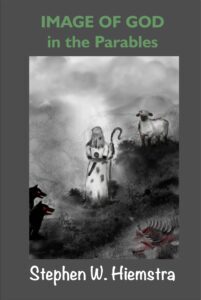The Parable of the Ten Virgins

Therefore you also must be ready,
for the Son of Man is coming at an hour you do not expect.
(Matt 24:44)
By Stephen W. Hiemstra
The Olivet Discourse (e.g. Mark 13; Matt 24) describes a series of prophetic statements that Jesus shares with his disciples just before his arrest and crucifixion. Prophecy is often taken as a forecasting activity that describes future events, but Jesus almost always talks about the future as a way to describe how life should be lived today. Two words that describe how to live today might be: Patient expectation. Theologians talk about the Kingdom of God being both already here and not yet (Ladd 1991, 68-69).
Olivet Discourse
Consider this brief part of the Olivet Discourse:
“Therefore you also must be ready, for the Son of Man is coming at an hour you do not expect. Who then is the faithful and wise servant, whom his master has set over his household, to give them their food at the proper time? Blessed is that servant whom his master will find so doing when he comes.” (Matt 24:44-46)
Here Jesus counsels his disciples to watch for his return, patiently attending to household duties and not chasing after various crises that he itemizes:
“And you will hear of wars and rumors of wars. See that you are not alarmed, for this must take place, but the end is not yet. For nation will rise against nation, and kingdom against kingdom, and there will be famines and earthquakes in various places.” (Matt 24:6-7).
This message is repeated over and over in the Olivet Discourse, Jesus’ most lengthy prophetic statement. Patient expectation suggests being aware of the times and seasons, but not losing one’s head the midst of chaos. The focus in the Olivet Discourse in on faithfully attending to one’s duties as Christ’s disciples, not obsessing about future revelations or the second coming.
Old Testament Prophecy
In the Old Testament we see two kinds of prophets: Covenantal prophets and covenant-lawsuit prophets. Covenantal prophets are like Moses and King David who interact with God to introduce new covenants. When Moses receives the Ten Commandments on Mount Sinai (Exod 20) or Nathan shares his dream with King David (2 Sam 7), they are functioning as covenantal prophets. Covenant-lawsuit prophets, like Elijah and Elisha, remind the people and their king of their obligations under the covenant, especially the blessings and curses found in Deuteronomy 28. While the covenant-lawsuit prophets that prophesy fire and grindstone gather the most attention, Jesus clearly functioned as both types of prophets in the Olivet Discourse.
One of the key statements of the role of a prophet distinguishes Moses from prophets who are only given visions and dreams:
“Hear my words: If there is a prophet among you, I the LORD make myself known to him in a vision; I speak with him in a dream. Not so with my servant Moses. He is faithful in all my house.With him I speak mouth to mouth, clearly, and not in riddles, and he beholds the form of the LORD. Why then were you not afraid to speak against my servant Moses?” (Num 12:6-8)
Here the prophet only repeats the words given him by God, whether received in a vision or in person. More generally, the idea of a prophet as a soothsayer, fortune teller, or forecaster of future events motivates the Greek word: prophet. More typically in the New Testament the preferred reference to the prophetic role is Apostle, which means messenger or one who is sent, to avoid confusion with the Greek concept of a prophet.
The focus of the Old Testament prophet is on adhering to the covenant, not on forecasting future events, which suggests that the Old Testament prophet and the New Testament prophet share a common focus on patiently adhering to a faithful livestyle, especially in confusing times.
The Parable of the Ten Virgins
We see this prophetic framework modeled in the Parable of the Ten Virgins. We read: “Then the kingdom of heaven will be like ten virgins who took their lamps and went to meet the bridegroom.” (Matt 25:1) The wise virgins brought extra oil; the foolish did not. When the bridegroom is delayed, the foolish virgin’s lamps ran out of oil and they were excluded from the wedding, an analogy to heaven. In this parable patience is modeled in the idea of being prepared for whatever comes to pass.
The lamps in this parable are reminiscent of the Menorah candles found in the temple, a symbol of Judaism. The parable is more widely an analogy to the language of Revelation where the church is described as the bride of Christ, who is the bridegroom: “Let us rejoice and exult and give him the glory, for the marriage of the Lamb has come, and his Bride has made herself ready.” (Rev 19:7) The importance of the marriage feast of the Lamb to Christian eschatology places the character trait of patience, one of the Apostle Paul’s fruits of the spirit (Gal 5:22), at the heart of the Gospel
The Parable of the Ten Virgins
Also see:
The Face of God in the Parables
The Who Question
Preface to a Life in Tension
Other ways to engage online:
Author site: http://www.StephenWHiemstra.net
Publisher site: http://www.T2Pneuma.com
Newsletter at: https://bit.ly/Thanks_24, Signup
The post The Parable of the Ten Virgins appeared first on T2Pneuma.net.



